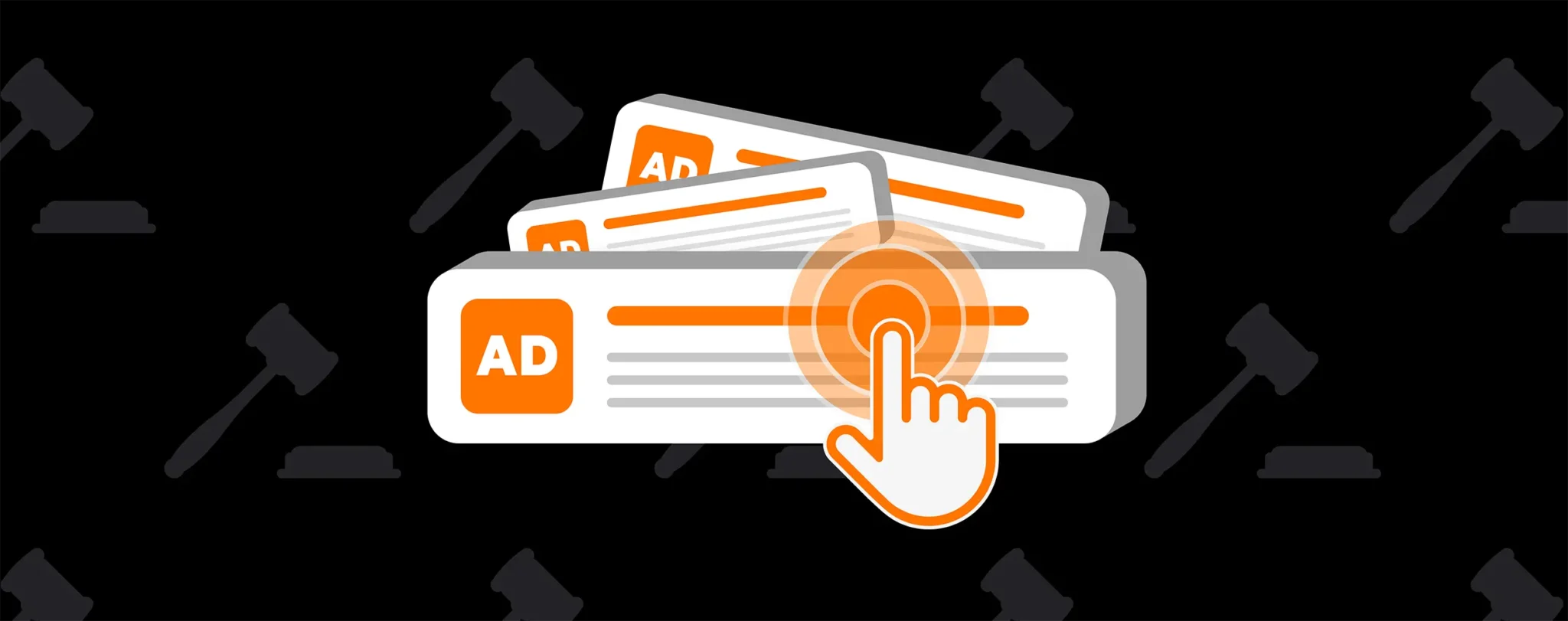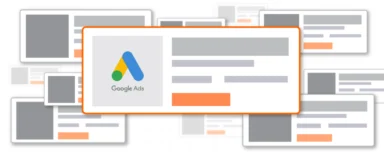PPC For Lawyers: A Practical Overview
Gone are the days when clients first met attorneys with a handshake. Now, that first encounter usually happens via Google. PPC advertising can generate 3-5x ROI for law firms when executed properly, but countless legal professionals waste $2,000-$10,000 monthly on non-compliant, poorly-targeted campaigns that attract unqualified leads.
If you’re a lawyer trying to grow your client base, pay-per-click (PPC) advertising is a powerhouse tool you can’t ignore – but only when done right. Keep reading as we break down everything law firms need to know about compliant, profitable PPC campaigns that actually convert prospects into paying clients.
Understanding the Basics of PPC for Lawyers
Pay-per-click advertising is a digital marketing model in which law firms pay a fee each time one of their ads is clicked. Essentially, it’s a way of buying visits to your site, rather than attempting to “earn” those visits organically.
Here’s a basic breakdown of the process:
- You create ads for your law firm and choose keywords related to your services.
- When someone searches for those keywords on Google, your ad may appear at the top or bottom of the search results page.
- If the searcher clicks on your ad, they’re directed to your website or landing page.
- You pay Google for that click, regardless of whether the person becomes a client.
The beauty of PPC for lawyers lies in its precision. You’re not casting a wide net and hoping to catch a few fish; instead, you’re targeting individuals who are already in the market for legal services.
Lawyer Advertising Rules
Now, when it comes to running Google Ads, law firms need to follow specific rules. These guidelines, set by the American Bar Association (ABA) and state bar associations, are in place to protect consumers and maintain the legal profession’s integrity. The content of these guidelines largely deals with the following matters:
- Truthfulness: All advertising must be truthful and not misleading. This includes any claims about your services, expertise, or results.
- Disclaimers: Many states require specific disclaimers on lawyer advertisements. For example, you may need to state that past results don’t guarantee future outcomes.
- Confidentiality: Ensure that your ads don’t violate client confidentiality, even indirectly.
- Solicitation Rules: Be aware of rules regarding direct solicitation of clients, which can apply to targeted online ads.
Complying with these rules isn’t just about avoiding legal trouble – it’s crucial for maintaining your professional reputation. While Google offers tools to help you stay compliant, like location targeting and ad scheduling, the ultimate responsibility is yours.
ABA Model Rules 7.1-7.3: Your Foundation for Compliant PPC
The most pertinent of these rules is the American Bar Association’s Model Rules 7.1-7.3, even providing the framework most states use for legal advertising:
Rule 7.1 – Communications Concerning Services
- Truthfulness requirement: All PPC ads must be factually accurate. You cannot make claims about results, success rates, or outcomes unless you can substantiate them with data
- No misleading statements: Avoid superlatives like “best,” “top-rated,” or “#1” unless you can prove these claims with objective third-party rankings
- Specialization restrictions: Only claim to be a “specialist” if you’re certified by an appropriate state-recognized organization
Rule 7.2 – Specific Communications Rules
- Required disclaimers: Most states require disclaimers like “No attorney-client relationship is formed by visiting this website” or “Past results do not guarantee future outcomes.”
- Geographic limitations: You can only advertise legal services in jurisdictions where you’re licensed to practice
- Record retention: Maintain copies of all PPC ads and landing pages for at least 3 years (some states require 5+ years)
Rule 7.3 – Solicitation of Clients
- Direct solicitation limits: Highly targeted PPC campaigns may constitute direct solicitation in some jurisdictions
- Real-time communication rules: Live chat features on PPC landing pages may trigger additional compliance requirements
State-Specific Compliance Requirements
High-Regulation States
- Florida: Requires pre-approval of all legal advertising, including PPC ads, by the Florida Bar
- Texas: Mandates specific disclaimer language and has strict rules about testimonials in legal advertising
- New York: Prohibits certain types of case result advertising and has specific requirements for lawyer advertising records
Moderate-Regulation States
- California: Requires “Attorney Advertising” labels on legal marketing materials
- Illinois: Has specific font size and placement requirements for required disclaimers
- Pennsylvania: Mandates specific disclaimer language for contingency fee advertising
Key Benefits of PPC for Lawyers
With all of these rules and regulations, what’s the point of setting up PPC marketing then? Let’s explore some of the key benefits that make PPC such a powerful tool in the legal industry.
Targeted Reach
One of the biggest advantages of PPC for lawyers is the ability to reach a highly targeted audience. Unlike traditional advertising methods, PPC allows you to display your ads specifically to people actively searching for legal services in your practice area and location.
For example, if you’re a personal injury lawyer in Chicago, you can set your ads to appear when someone searches for “Chicago personal injury attorney” or “car accident lawyer near me” while in the Chicago area.
This level of targeting ensures that your marketing budget is spent on reaching clients who already know they need your services.
- Demographics: Target based on age, gender, household income, and more.
- Location: Target specific cities, regions, or even a radius around your office.
- Device: Focus on users searching on mobile devices, which can be crucial for urgent legal needs.
- Time: Schedule your ads to appear during your office hours or when you’ve noticed higher engagement rates.
Immediate visibility
In contrast to search engine optimization (SEO), which can take months to yield results, PPC offers immediate visibility for your law firm. As soon as your campaign is approved and launched, your ads can start appearing at the top of search results.
When someone has just been in a car accident, is facing criminal charges, or is dealing with a sudden lawsuit, being visible at the top of search results can be the difference between gaining a new client and losing them.
Measurable results
Another advantage of PPC over traditional advertising methods is the wealth of data it provides. Google allows you to track virtually every aspect of your campaigns, including:
- How many times your ad was shown
- How many people clicked on your ad
- The percentage of people who clicked after seeing your ad
- The percentage of clicks that resulted in a desired action (e.g., filling out a contact form)
- How much you’re paying for each click
- How much you’re spending to acquire each new client
This makes it much easier to see which keywords are performing well, which ad copy is resonating with potential clients, and which landing pages are converting visitors into leads.
Enhanced Online Presence
PPC can also help you quickly test different messaging and value propositions. By running A/B tests on your ad copy, you can gain valuable insights into what resonates with your target audience. These insights can then be applied to other areas of your marketing, such as your website content and offline advertising.
Different Types of PPC Ads on Google
PPC ads exist across many platforms and services, but most businesses will find that their money can be spent most wisely with Google. Not that Google doesn’t come with downsides for its services, but the advertising ecosystem is one of the most robust, with a wide array of ad formats, each with its own unique advantages.
Search Ads
Search Ads are the classic text-based ads that appear at the top of search engine results pages (SERPs). They resemble standard search result listings, displaying the law firm’s name, page title, and meta description.
The power of Search Ads lies in their ability to reach people who are actively seeking legal assistance. By typing in a relevant query, these individuals have already expressed interest, making them more likely to click on your ad and become potential clients.
Several factors determine the performance of your Search Ads, including:
- Expected click-through rate: The likelihood of people clicking on your ad
- Relevance to search intent: How well your ad aligns with what the user is looking for
- Landing page relevance: The relevance and usefulness of your website to the searcher
Local Service Ads
In contrast to traditional text-based search ads, Local Service Ads feature prominent law firms at the top of Google search results. These ads showcase key information, including the firm’s name, location, ratings, and contact details.
Several status badges can appear on these ads, each indicating a different level of screening:
- Pre-Badge: Law firms that have started the screening process but haven’t completed it can still advertise without a badge.
- Google Screened: A green checkmark indicating the law firm has passed Google’s background and license checks.
- Google Guaranteed: A white checkmark on a green background, showing the firm has undergone a more rigorous screening process and offers a $2,000 guarantee of satisfactory service.
- License Verified by Google: A green checkmark verifying the firm’s professional licenses.
Not only do these verification badges help build trust with potential clients, but the ad is designed for the reader to call or message your law firm with a single click (which means more highly qualified, case-ready leads.)
Display Ads
Another type of ad format is Display Ads, which differ from search ads in their approach. Instead of being triggered by specific keyword queries, display ads use visual elements like images, graphics, and video to capture users’ attention as they browse the internet.
Display ads can appear in various formats, such as:
- “Banner ads,” which are horizontal or vertical ads that appear at the top, bottom, or sides of a webpage.
- Interstitial ads. Full-screen ads that appear between pages or during natural transition points in an app.
- Ads that play before, during, or after video content on platforms like YouTube.
- Interactive ads that include elements like animations, games, or expandable features.
The power of display advertising lies in its overall reach. Even if someone doesn’t click on your ad, seeing it over and over again can help build brand awareness and keep your law firm top-of-mind.
So, while display ads may not have the same direct response rate as search ads, they can still be highly effective at driving valuable actions like website visits, consultation requests, and phone calls.
Retargeting Ads
Retargeting, also known as “Google Remarketing,” is a PPC strategy that allows law firms to reconnect with potential clients who have already shown interest in your services.
Here’s how it works:
- Someone visits your law firm’s website.
- A small piece of code (called a cookie) is placed on their browser, which adds them to a remarketing list.
- As that person browses the internet and visits other websites that are part of the Google Ads network, they will start seeing your retargeted ads.
Retargeting ads are incredibly powerful because they allow you to stay top-of-mind with people who have already expressed interest in your legal services. Even if they didn’t convert on their initial visit, retargeting gives you another chance to get them to take action.
For example, let’s say a potential client searches “personal injury lawyer near me” and visits your website but doesn’t schedule a consultation. With retargeting, you could serve them an ad reminding them of your expertise in personal injury cases and offering a free case evaluation, enticing them to come back and get in touch.
How Law Firms Can Create a Successful Google Ads Campaign
Creating a successful Google Ads campaign for law firms requires more than just launching an ad and hoping for clicks. The legal industry is highly competitive when it comes to pay-per-click (PPC) advertising, and success depends on a well-rounded approach that encompasses strategy, strong messaging, and efficiently managed resources.
Below, we’ll break down the best practices to help you not only generate clicks but also turn those clicks into quality leads for your law firm.
Write Compelling Ad Copy
The first impression is often the most important, and in Google Ads, your ad copy is that vital first touchpoint. To capture attention, the copy needs to be compelling, concise, and persuasive. It’s your opportunity to address the searcher’s problem and present your firm as the ideal solution. Use emotion-driven language to emphasize the urgency or necessity of seeking legal advice, and don’t be afraid to experiment with different headlines to see what resonates most with your audience.
Crafting a great ad copy also involves balancing keyword incorporation with clear, engaging text. Avoid empty claims and instead focus on verifiable benefits, such as “Over 20 Years Handling Complex Divorce Cases” or “Award-Winning Criminal Defense Lawyer.” Your ad copy should inspire action while staying authentic and believable.
Highlight Your Unique Value Proposition
In a saturated legal market, standing out means clearly communicating what makes your firm unique. Your unique value proposition (UVP) is the core message that differentiates you from the competition. Perhaps it’s your extensive trial experience, a focus on personalized client service, or a reputation for winning high-stakes cases. Whatever your strength, make sure it’s front and center in your ads.
For example, phrases such as “Specializing in Family Law with a Compassionate Approach” or “24/7 Access to Your Attorney” showcase both expertise and client-centric values. Tailor your UVP to the audience you’re targeting and link it directly to their needs and concerns. Remember, potential clients need assurance that you’re not just any lawyer – you’re the lawyer they need.
Use Strong, Action-Oriented Language
Conversions happen when people feel compelled to act, and strong, action-oriented language in your ads can make all the difference. Replace passive phrases with direct calls to action, urging potential clients to contact you immediately. Consider phrases like “Request a Free Consultation Now,” “Protect Your Future – Call Today,” or “Schedule Your Case Evaluation.” These statements convey urgency and solution-focused messaging.
It’s also important to align your action verbs with the mindset of a person seeking legal help. Many legal situations – such as personal injury, divorce, or criminal defense – involve high emotions, so firm yet reassuring language can be particularly effective.
Include Relevant Keywords
Keywords form the backbone of any successful PPC campaign, and including them naturally within your ad copy is vital for both performance and relevance. The keywords you choose should directly align with the services your law firm provides and match the intent of your prospective clients. For instance, if your firm specializes in DUI defense, incorporating terms like “Experienced DUI Lawyer” or “Best DUI Defense Attorney Near Me” can improve your Quality Score and establish credibility.
Take the time to research and prioritize the top-performing keywords for your practice areas, and remember to avoid “keyword stuffing.” Keep the ad copy smooth and easy for potential clients to read while maintaining relevance to the search queries.
Address the Searcher’s Intent
Every search on Google represents an intent: informational (seeking knowledge), navigational (looking for a specific brand or business), or transactional (ready to take action). Your ads need to match and address this intent to thrive. For example, if you’re targeting someone searching for “Local Personal Injury Lawyer,” they’re likely looking for immediate help. Similarly, those typing in “Best Family Lawyers for Custody” may want to see experience and success rates as reassurance.
Think from the perspective of your audience. Anticipate the specific needs or hesitations they might have and answer these concerns directly in your ad. This can increase engagement and lead to better-qualified inquiries.
Follow Character Limits
In Google Ads, every word counts – literally. Headlines are capped at 30 characters, and descriptions at 90, which means you need to convey as much value as possible within strict limits. This makes clarity and brevity essential. Avoid filler words and focus on highlighting actionable details, like “Free Case Review,” “Affordable Rates,” or “20+ Years of Legal Expertise.”
By writing clear, impactful copy that stays within the guidelines, you can ensure your ads are eligible to appear while resonating strongly with potential clients. Test variations of your ad copy to identify which combinations yield the best performance.
With careful preparation and thoughtful execution of these steps, your law firm can build Google Ads campaigns that not only generate click-throughs but also drive meaningful client leads.
Top Mistakes Law Firms Make When Starting PPC Campaigns
When it comes to PPC for law firms, you might not get it perfect right out of the gate. Starting a successful campaign is about being willing to learn, test, and adjust your approach based on what the data tells you.
While there’s something to be said for learning from your own mistakes, wouldn’t you rather learn from someone else’s? Let’s break down four PPC mistakes that law firms tend to make when they’re just getting their feet wet.
1. Targeting Irrelevant Keywords
Targeting irrelevant keywords is one of the most common mistakes in PPC. For example, a personal injury lawyer targeting the broad keyword “lawyer” might end up paying for clicks from people looking for criminal defense or family law services.
To avoid this:
- Conduct thorough keyword research specific to your practice areas.
- Use negative keywords to exclude irrelevant searches.
- Regularly review your search terms report to identify and exclude irrelevant queries.
- Focus on long-tail keywords that indicate specific legal needs.
2. Poor Location Targeting
Let’s say you’re a Boston-based bankruptcy lawyer, but your ads are showing up in Upstate New York. Not very practical, right? That’s poor location targeting in a nutshell, where your ads are being shown to people outside your service area.
Here are a few ways to avoid this mistake:
- Set up location targeting in Google Ads to focus on the geographic areas you serve.
- Use location extensions to show your office address in ads.
- Consider using location-specific keywords (e.g., “Dorchester divorce lawyer”).
- Adjust bids based on location performance.
3. Lack of Dedicated Landing Pages
Another common mistake is sending all your PPC traffic to your homepage. Without dedicated landing pages, you miss the opportunity to provide a tailored experience that matches the user’s search intent.
Here are a few ways to make your landing page more conversion-focused:
- Align the content with the ad and keywords that led to the click.
- Include a clear call-to-action (CTA) such as “Schedule a Free Consultation.”
- Ensure the page loads quickly and is mobile-friendly.
- Include trust signals like client testimonials or awards.
- Keep forms short and only ask for essential information.
4. Setting and Forgetting PPC campaigns
PPC is not a “set it and forget it” marketing channel. The legal advertising sector is constantly changing, and your campaigns need regular attention to remain effective.
- Regularly review and adjust your keyword lists.
- Test different ad copy and landing pages.
- Stay updated on changes to Google Ads policies and features.
- Continuously monitor and optimize your campaigns based on performance data.
- Consider seasonal trends that might affect search volume in your practice areas.
PPC vs. SEO: What’s Best for my Law Firm?
When it comes to digital marketing for law firms, two strategies often come to the forefront: Pay-Per-Click (PPC) advertising and Search Engine Optimization (SEO). While we’ve focused primarily on PPC in this guide, it’s still important to understand how these two strategies compare and how they can work together to maximize your online presence.
Speed of results
For law firms needing immediate visibility, such as those looking to quickly promote a new practice area, PPC can provide that instant boost. However, the moment you stop paying, your visibility disappears. SEO, while slower to show results, can provide more sustainable long-term visibility.
PPC
- Offers immediate visibility as soon as your campaign is approved and launched.
- Allows you to appear at the top of search results instantly, even for highly competitive keywords.
- Provides a quick way to test different messages and offerings.
SEO
- Is a long-term strategy that can take months to show significant results.
- Builds organic authority over time, leading to sustained visibility.
- Requires ongoing effort to maintain and improve rankings.
Measurability and control
PPC is the clear choice for law firms that need granular control over their firm’s marketing spending to adapt to market changes or competitor actions. It’ll cost more than SEO, sure, but that’s the price you pay for agility.
PPC
- Provides detailed, real-time data on impressions, clicks, conversions, and costs.
- Allows for precise control over when and where your ads appear.
- Enables quick adjustments to messaging, targeting, and budget.
SEO
- Offers insights through tools like Google Search Console.
- Provides less direct control over when and where you appear in search results.
- Requires more time to see the impact of changes made to your strategy.
The Best Results Happen When You Combine Both
While it’s natural to wonder which strategy is “better,” the truth is that the best results often come from combining both PPC and SEO.
More Data Synergy
PPC data can inform your SEO strategy and vice versa. For example, you could use PPC to quickly test the effectiveness of keywords, then apply these insights to your SEO efforts. This can help you focus your SEO resources on keywords proven to drive conversions.
Increased SERP Coverage
For highly competitive keywords where achieving top organic rankings is challenging, PPC can ensure you still have visibility. Conversely, for keywords where you have strong organic rankings, you might reduce PPC spend.
Comprehensive Analytics & Reporting
Combining data from both PPC and SEO provides a more complete picture of your online performance. This can reveal insights that might be missed when looking at each channel in isolation.
Potential Clients are Searching, Make Sure They Find You!
It’s no secret that mastering PPC advertising can significantly boost your client acquisition. But here’s the catch—most law firms are already operating at full capacity. Between court appearances, client meetings, and case preparation, where does digital marketing fit in?
Digital marketing isn’t a side task you can squeeze into your lunch break. It’s a complex, full-time job that demands specialized skills and constant adaptation.
You wouldn’t advise a client to represent themselves in a complex legal matter just because they’ve read a few articles online, right? Of course not.
The same principle applies to your firm’s PPC strategy, and that’s why it’s so important to partner with a law firm marketing agency to get it right. They have the knowledge, experience, and tools you won’t find anywhere else.
Frequently Asked Questions – FAQs
Are Google Ads worth it for law firms?
Yes, Google Ads can generate 3-5x ROI for law firms when executed properly with compliant campaigns and targeted keywords. The key is focusing on high-intent searches from people actively seeking legal services rather than broad, generic terms.
What is PPC advertising for lawyers?
PPC (pay-per-click) advertising for lawyers is a digital marketing strategy where law firms pay each time someone clicks on their ads in Google search results. This allows firms to appear at the top of search results immediately for relevant legal keywords.
Can lawyers advertise on Google Ads?
Yes, lawyers can advertise on Google Ads but must comply with ABA Model Rules 7.1-7.3 and state-specific advertising regulations. All ads must be truthful, include required disclaimers, and avoid misleading claims about specialization or results.
Do Google Ads work for personal injury lawyers?
Yes, Google Ads work exceptionally well for personal injury lawyers because people often search for legal help immediately after accidents. However, competition is fierce, with CPCs often exceeding $100, requiring expert campaign management to achieve profitability.
What’s the difference between PPC and SEO for lawyers?
PPC provides immediate visibility at the top of search results but stops when you stop paying, while SEO builds long-term organic rankings that take months to develop. The best approach combines both strategies, using PPC for immediate results and SEO for sustainable growth.






